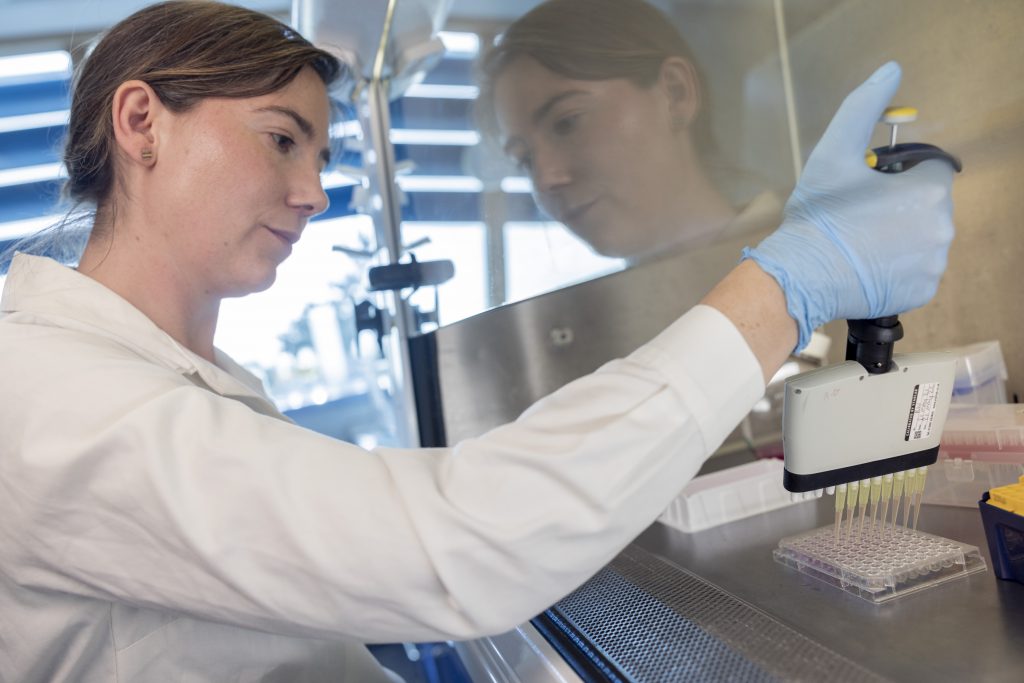
Velindre Cancer Centre and Cardiff University are collaborating on a study to assess the way radiotherapy affects how cancers are seen by the immune system.
It is not currently understood whether radiotherapy makes it easier for the immune system to recognise cancer cells; it could potentially make this more difficult if the cancer responds to radiotherapy by turning the immune system off.
Dr Hannah Reed, WCRC Radiotherapy Clinical Research Fellow, is assessing the impact of stereotactic ablative radiotherapy (SABR) on antigen-specific T-cell responses in patients at Velindre with a range of cancers.
SABR differs from normal radiotherapy because it delivers very intense doses of extremely targeted therapy.
“How SABR affects the immune system is not well understood,” said Prof. Awen Gallimore, supervising Dr Reed. “We want to know if this high dose of radiation causes the immune response to rise or fall, and what changes happen to the immune cells as a result.”
Dr Reed is measuring immune responses in the blood of patients undergoing radiotherapy and has collected data from nearly 20 patients since April 2021.
“The problem is that all patients respond slightly differently – they have different cancers and levels of immune health, so we will need to look at quite a lot of people before we see any meaningful patterns emerging,” said Prof Gallimore.
“But we think it’s very possible that radiotherapy would work better if combined with immunotherapy. We are now looking for these emerging patterns, vulnerabilities, and significant timepoints that may be exploited for immune intervention.”
Recruitment to the study is ongoing, and the team hopes to design a clinical study based on the findings by the end of 2023.
Prof. Gallimore explained that next steps involve providing a rationale for new early phase clinical trial studies where patients can receive both SABR and immunotherapy as part of a combination package.